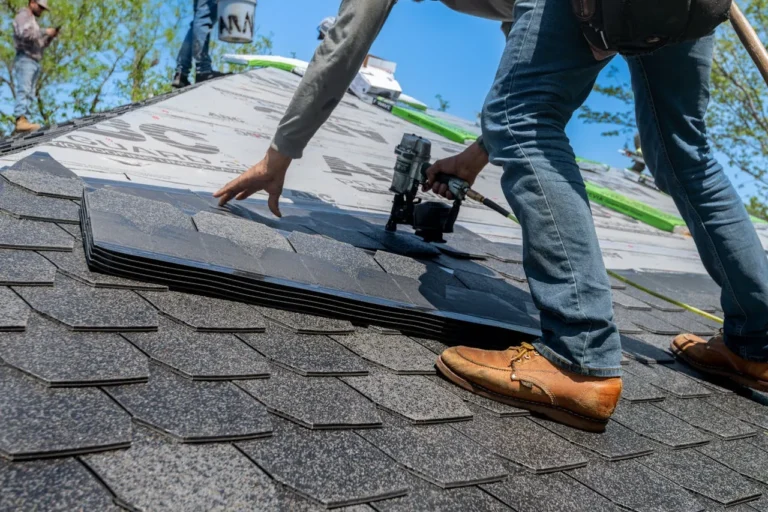
Sila Begins Commissioning of Moses Lake Plant, Eyes Full Operation in 2025
Sila, a pioneering developer of next-generation battery materials, has officially entered the commissioning phase of its first auto-scale manufacturing facility, located in Moses Lake, Washington. This milestone marks a critical step toward achieving full-scale production capability by the second half of 2025 and reinforces Sila’s position as a leader in domestic battery innovation and manufacturing.
The commissioning of the facility—named Sila Moses Lake—involves a comprehensive series of technical assessments and system validations. These include mechanical completions, integration of subsystems, verification of equipment performance, and stringent safety and compliance evaluations. The objective is to confirm that all plant operations are functioning as designed and meet the rigorous standards required for large-scale production. Successful commissioning is a prerequisite to transitioning into full material production, which is on track for later in 2025.
Sila Moses Lake is being designed to manufacture Titan Silicon, Sila’s flagship silicon anode material. Titan Silicon represents a breakthrough in battery chemistry, enabling substantial gains in energy density and overall battery performance. Once operational, the plant will deliver this advanced material at a commercial scale, serving multiple major automotive partners and a growing portfolio of customers in consumer electronics, energy storage, robotics, and aerospace sectors.
The launch of commissioning reflects the culmination of years of research, development, and strategic planning. According to Sila Co-founder and CEO Gene Berdichevsky, the milestone exemplifies the company’s broader ambition to bridge the innovation-to-manufacturing gap that has historically limited U.S. leadership in advanced technologies. “America has always led the world in innovation, but we’ve often fallen short when it comes to manufacturing that innovation at scale. Sila aims to change that,” said Berdichevsky. “This milestone is proof that we can take cutting-edge technology and turn it into reality. It’s a tremendous accomplishment for the team, and more importantly, it strengthens our path toward greater energy independence.”

Titan Silicon first entered the commercial market in 2021, becoming the first next-generation silicon anode product to be deployed at scale in lithium-ion batteries. Compared to traditional graphite anodes, Titan Silicon delivers an energy density improvement of 20 to 25 percent. This translates into longer driving ranges for electric vehicles (EVs), faster charge times, and extended battery life in portable electronics and other high-demand applications. Sila projects that future iterations of Titan Silicon will increase energy density gains to as much as 40 percent, slash charging times to under 10 minutes, and reduce overall battery costs on a per kilowatt-hour basis.
The importance of the Moses Lake plant extends beyond technological innovation. It represents a strategic investment in U.S.-based battery material supply chains. By producing advanced anode materials domestically, Sila aims to mitigate the nation’s reliance on foreign sources for critical components used in EVs and other high-performance battery systems. In doing so, the company contributes to national goals for clean energy independence and the reindustrialization of America’s high-tech manufacturing base.
The facility’s location in Moses Lake was selected based on a combination of strategic factors, including access to clean, low-cost hydroelectric power, availability of industrial infrastructure, and strong support from local and state governments. These elements align with Sila’s commitment to building a sustainable and scalable manufacturing ecosystem for advanced battery materials.
Once fully operational, Sila Moses Lake is expected to be one of the largest silicon anode material production plants in the world. The facility is projected to produce enough Titan Silicon to support the manufacture of batteries for up to one million electric vehicles annually. Sila’s long-term plan includes modular expansion of the site to scale production further as demand from EV makers, tech companies, and energy storage providers continues to grow.
The automotive industry is a central focus of Sila’s commercialization strategy. The company has announced multiple partnerships with leading global automakers who plan to incorporate Titan Silicon into their next-generation electric vehicle platforms. These partnerships are crucial for EV makers seeking to differentiate their offerings through longer range, reduced charging time, and improved efficiency—all of which are achievable with Sila’s technology.
However, the impact of Titan Silicon extends well beyond the automotive space. Consumer electronics companies, robotics firms, and even aerospace organizations are eyeing the technology for its potential to enhance performance across a wide range of battery-powered systems. From smartphones and laptops to drones and satellites, applications requiring high energy density, rapid rechargeability, and long cycle life stand to benefit from Sila’s material science innovations.
Founded in 2011 by a team of battery scientists and engineers, Sila was built on a mission to accelerate the global transition to clean energy through revolutionary battery chemistry. The company achieved a major breakthrough with its proprietary silicon anode material, which replaces traditional graphite anodes to deliver higher performance without requiring major changes to battery manufacturing processes. This drop-in compatibility has allowed Sila to move quickly from lab-scale development to commercial deployment.
In 2021, Sila made headlines by launching the world’s first commercially available silicon anode for lithium-ion batteries. The product was initially integrated into a line of premium consumer wearables, demonstrating the material’s real-world performance in a compact form factor. This early success validated Sila’s approach and laid the groundwork for larger-scale applications, particularly in EVs.
To bring Titan Silicon to scale, Sila has attracted investment from a wide range of strategic partners and venture capital firms. Key investors include 8VC, Bessemer Venture Partners, Coatue, Canada Pension Plan Investment Board, In-Q-Tel, Matrix Partners, Sutter Hill Ventures, and funds and accounts advised by T. Rowe Price Associates, Inc. This backing has provided the financial foundation for Sila’s ambitious growth plans and supports its long-term vision of becoming a cornerstone of the global battery materials supply chain.
As global demand for electrification accelerates, the importance of domestic battery material manufacturing has become a key focus for both industry and government stakeholders. The U.S. Department of Energy and other federal agencies have identified silicon anode materials as a critical component in next-generation energy storage systems, and companies like Sila are at the forefront of delivering on this national priority.
Sila’s Moses Lake facility will also serve as a blueprint for future sites. The company is exploring additional locations for expansion in the coming years, with the goal of building a network of U.S.-based manufacturing hubs that can meet rising demand while maintaining high environmental and ethical standards.
Sila’s commitment to sustainability is evident in every aspect of the Moses Lake project. The plant is being constructed with an emphasis on energy efficiency, water conservation, and minimal environmental impact. By leveraging renewable hydroelectric power, Sila ensures that its production processes contribute to a lower carbon footprint while supporting the broader goal of decarbonizing transportation and power sectors.
With the start of commissioning, Sila moves closer to fulfilling its promise of revolutionizing the battery industry. The company’s innovative materials, combined with its focus on scalable domestic manufacturing, position it as a pivotal player in the clean energy transition. As the Moses Lake plant ramps up toward full operational status in 2025, the battery materials landscape is poised for a transformation that will ripple across industries, technologies, and national borders.
In summary, the commissioning of the Sila Moses Lake facility is not merely a technical milestone; it is a symbol of what is possible when scientific ingenuity meets manufacturing excellence. With its eyes set on full-scale production and global impact, Sila is setting a new standard for how advanced materials can be developed, manufactured, and brought to market—all within the borders of the United States.




